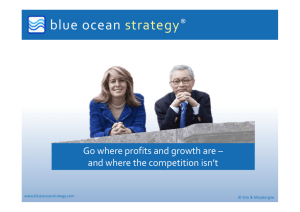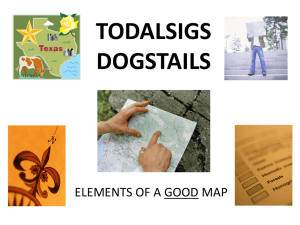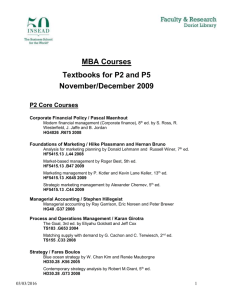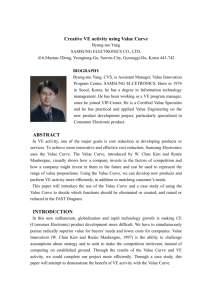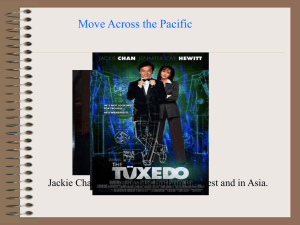Lecture 5-Search for Markets -update16Feb15
advertisement
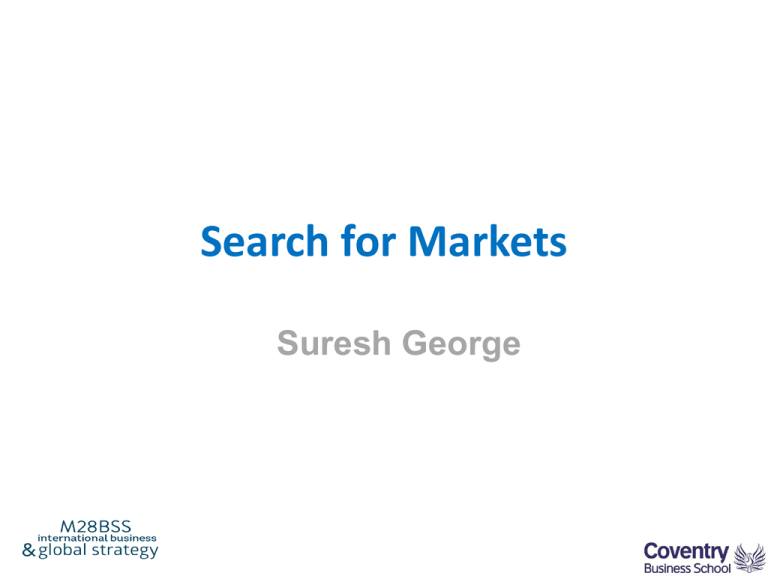
Search for Markets Suresh George Outline of the lecture • The Process of Searching for Markets • The Module 2 of the GMMSO3 software • Resources and databases for the search Background • Following on from company situational analysis, is your company a candidate for Internationalization? • Do you have a product for Internationalization? • Seek Markets for the company Process • A 4 step methodology Source:Janavaras.B, Paladini .S and George S (2013). Going Global: A Practical Guide Pearson Step1 - New Markets • Research and select countries where you feel there are opportunities for the expansion of your selected product or service • Select the criteria that are essential in determining high potential country markets for your company's product(s)/service(s) • Determine the relative importance (weight) of each criterion on a scale of 1-100 • Enter the value of all criteria against each market • Determine the best possible markets from this Grid • Can you create a new market space? Can you create a new market? • Use innovation to create a new market space • Looking Across Substitute Industries • Looking Across Strategic Groups Within Industries • Looking Across the Chain of Buyers • Looking Across Complementary Product and Service Offerings • Looking Across Functional or Emotional Appeal to Buyers Source: Chan & Mauborgne(2015) SOME EXAMPLES OF NEW MARKET CREATION Bodyshop • Is the Body Shop a Cosmetics Company? • Reduced price, glamour, and packaging costs while creating a new emphasis on natural ingredients and healthy living. Source: Chan & Mauborgne(2015) Polo Ralph Lauren • Built on the advantages of the two strategic groups that dominated the high-end clothing market—designer haute couture and the higher-volume, but lower-priced, classical lines of Burberry’s, Brooks Brothers, Aquascutum • emotional value of wearing an exclusive designer’s name + low price • Positions itself in the middle with options to move up and down Source: Chan & Mauborgne(2015) Lexus • Offers the quality of the high-end Mercedes, BMW, and Jaguar at a price closer to the lower-end cars Source: Chan & Mauborgne(2015) Source: Chan & Mauborgne(2015) Indicators of Globalization Step 2- Selection of criteria/variables to rank the countries • Select appropriate criteria! For example, if the product/service is intended for adults over 65 years old, you should select the age distribution criterion; determine how many adults are over 65 years old in a particular country. • The company’s target market is the most important indicator of which criteria to choose • Create an Analytical Grid Step 3: Market evaluation • Against each selected criteria, research and input the values on the grid • You will need to include the year the information was collected, the unit of measure, the weight, and the value. • +ve and –ve relationships for the criteria • Once the grid is completed and the values inputted against each country, the grid should show the country with the best potential for your product/service. • Your top Market should emerge from the Grid DEMO OF MODULE 2 OF GMMSO3 References • Janavaras.B, Paladini .S and George S (2013). Going Global: A Practical Guide Pearson • Kim,Chan, W & Mauborgne, Renée (2015) Creating New Market Space HBR blog. Available on https://hbr.org/1999/01/creating-new-market-space, last accessed on 10/02/2015 Useful Resources • • • • • AT Kearney Ideas and Insights (http://goo.gl/WnKQI ) Market Potential Index from Global Edge (http://goo.gl/Gm3vp) World Integrated Trade Solution(http://goo.gl/pIoPO ) UNCTAD (http://goo.gl/Z2DY7 ) Suresh George resource base https://sites.google.com/site/theartofgoingglobal/
